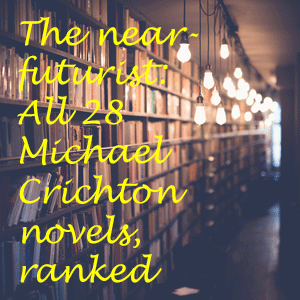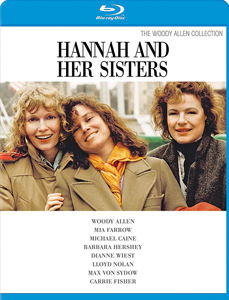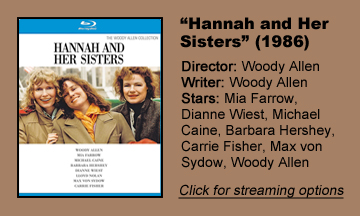“Hannah and Her Sisters” (1986) takes a sometimes absurd but ultimately realistic view of human behavior as it chronicles a period encompassing three Thanksgivings of a New York City family and people in their circles. It’s consistently and gently humorous, occasionally sneaking in a gut-busting gag, as it slyly builds toward its overarching message that these four sisters will continue to love each other no matter what conflicts they get into.
Caine is able
The title encompasses Mia Farrow’s totally-with-it Hannah, Barbara Hershey’s wanderlusting Lee, Dianne Wiest’s (“Law & Order”) flighty Holly and Carrie Fisher’s noticeably underused April. The two most troubled and financially irresponsible, Lee and Holly, stand out among the quartet.
But it’s actually two non-title characters, Michael Caine’s Elliot and Woody Allen’s Mickey, who steal the show.
Caine seems to be the “Woody Allen character” at first. In voiceover narration that contrasts with his poised outward demeanor, we learn of Elliot’s obsession with the beautiful Lee at the first of the three Thanksgivings.
Elliot, who is married to Hannah, got the biggest laugh from me when (in voiceover) he speaks of having to play things very delicately as he pursues an affair with Lee, who is herself living with older art professor Frederick (Max von Sydow).
Right after Elliot assures himself that he’s going to take extremely careful steps, he bursts into the frame and kisses Lee, a hilarious illustration of how the hearts and brains of even sophisticated people don’t work in unison.
Allen is also in this movie, and it turns out having two “Woody Allen characters” isn’t one too many. TV producer Mickey has a comic relief arc in a film that’s already funny, but I didn’t find it to be overkill. Casually on the outside, Mickey shops around for a religion after a health scare has him acutely thinking about death.
We see this is more serious for him than anyone realizes, and it leads to a funny suicide-attempt scene where the rifle slips off his forehead because he’s sweaty. (Where else but in Allen’s oeuvre can one say “funny suicide-attempt scene” and have it be par for the course? Well, maybe Larry David’s.)
Visual tour of NYC
Notably more visually striking than another masterful Allen script, “Annie Hall,” “Hannah” treats us to nice shots of 1980s NYC especially in Mickey’s arc, which includes a horrible first date with Holly and later a reunion-cute wherein they reminisce about the now legendarily bad date.
“Hannah” is one of those elite Allen screenplays with dialog that sings. But it gains an extra level of greatness from the fact that everyone is up for single-shot walk-and-talks and overlapping speech. (Well, perhaps Fisher wasn’t up for it, thus explaining how she has a marquee billing but little screen time.)
Cinematographer Carlo Di Palma shows off places like Frederick’s studio apartment/workspace, a bookstore with overflowing stacks, and a sidewalk abutting evocatively rundown storefronts.
Serious laughs
The film finds its funniest groove when it contrasts people’s life foibles with important issues that most people don’t have time to (or don’t care to) discuss. To Mickey’s Jewish parents, his flirtation with Catholicism is bizarre (to his dad) and heartbreaking (to his mom).

Allen masterfully pens a scene where Mickey’s big questions (Why did God allow Nazis to exist?) are one side of the conversation, and the personal slight to his family is the other side.
The amusing disconnect between one side’s emotion and the other side’s intellectualizing is also seen when a flustered Lee returns home from cheating on Frederick, who is pontificating about the Holocaust program he watched on TV.
A deep bench
“Hannah” is loaded with talent down to the smaller roles, including a pre-“Law & Order” Sam Waterston (as an architect lothario!), a pre-“Seinfeld” Julia Louis-Dreyfuss, a pre-“Simpsons” Julie Kavner, a pre-“Home Alone” Daniel Stern, Lewis Black, J.T. Walsh, John Turturro and Richard Jenkins.
I could quibble that the romantic pairings are mundane as often as they are magical. I mean, Mickey and Holly honest-to-god bond over their lack of bonding. But it plays fine in a film that’s about how romantic pairings often don’t work when they should, and do work when they shouldn’t.
But who ends up with whom is almost beside the point in “Hannah and Her Sisters,” wherein Allen observes that happiness (or sadness) won’t necessarily appear logical to an outside observer.


